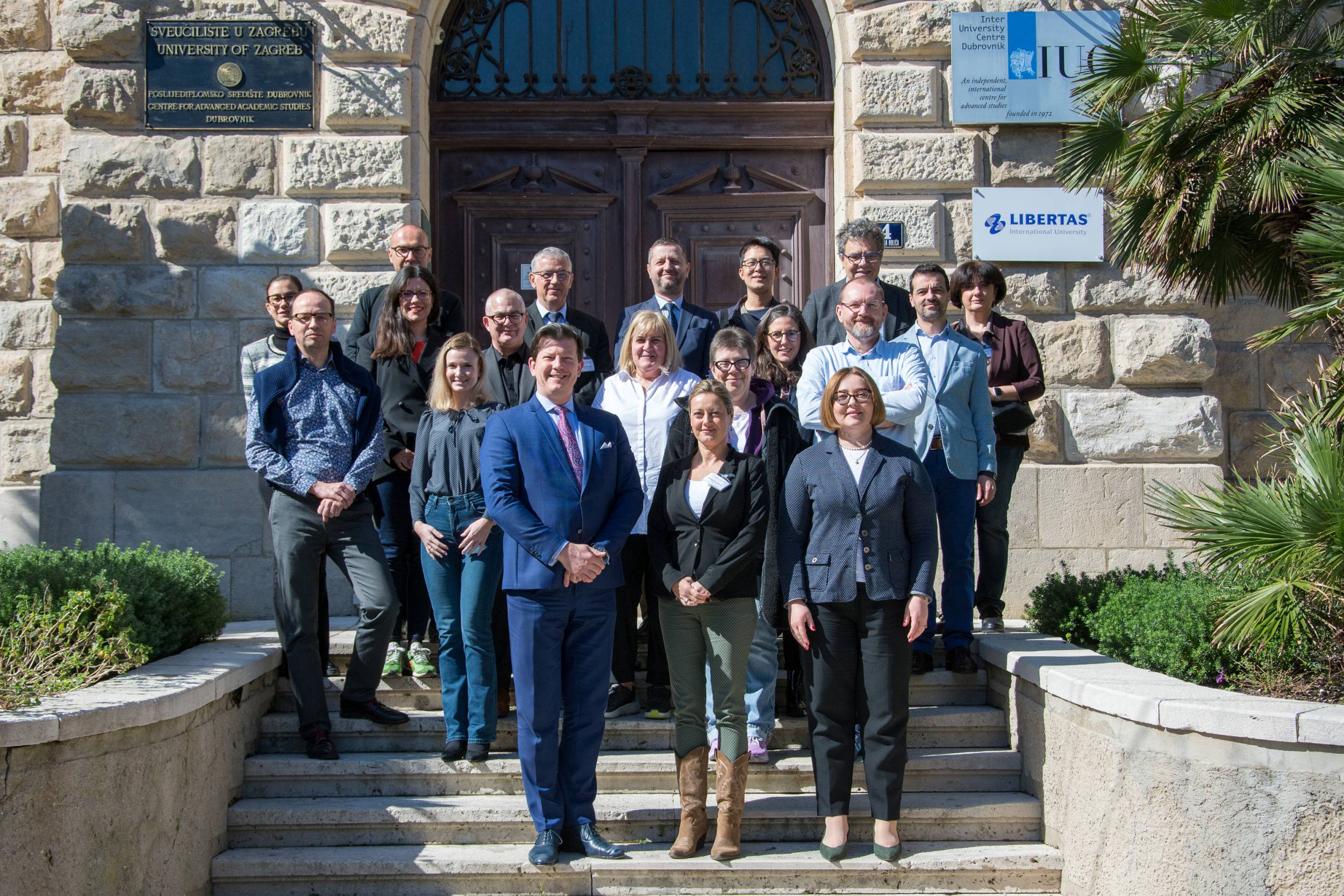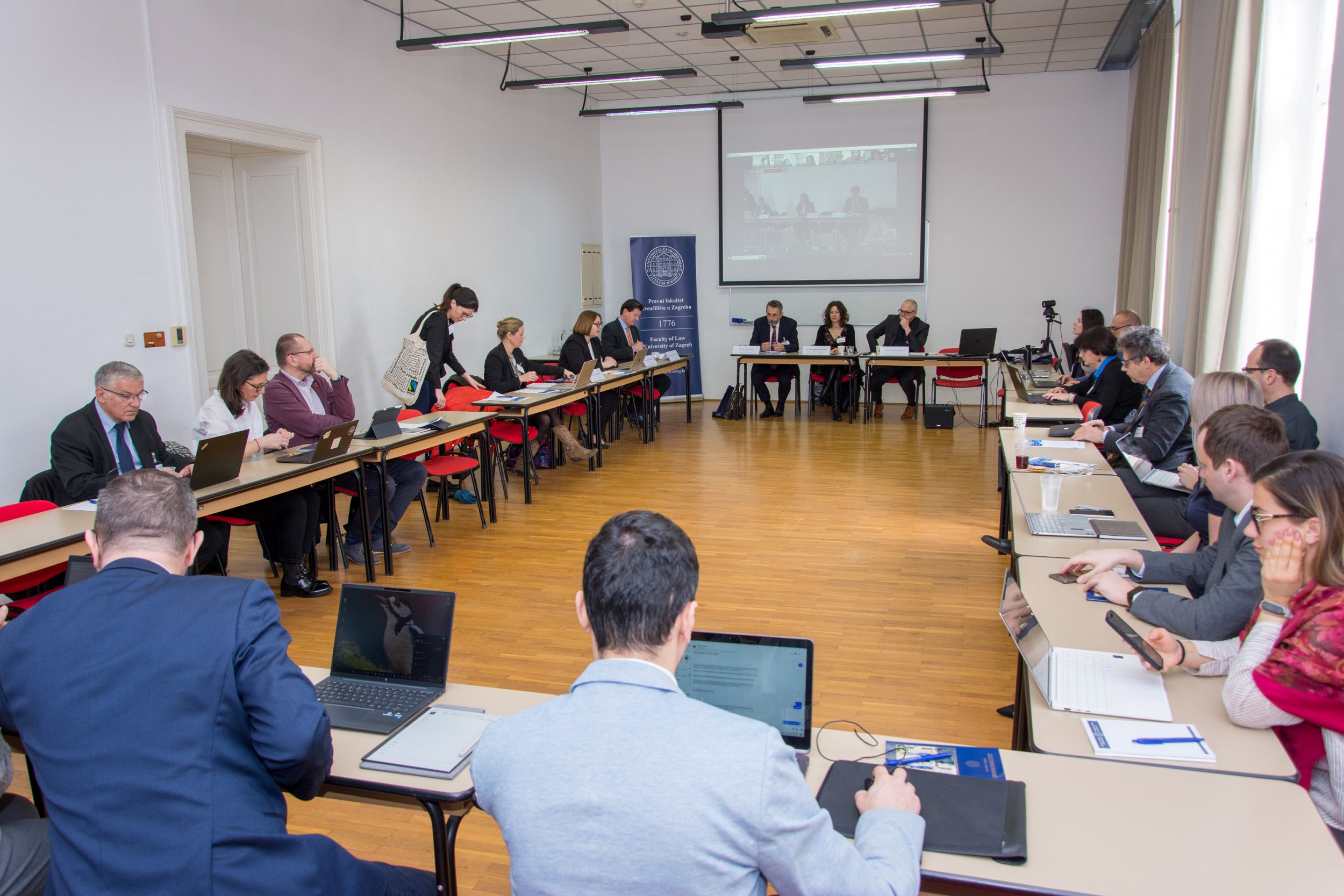This week, Dubrovnik hosted approximately forty scientists and public administration practitioners from all over Europe and beyond at the 13th Trans-European Dialogue (TED) scientific conference, held for the first time in Croatia on 7 and 8 March 2024. Over two days, renowned scientists and experts analyzed and discussed digital governance and artificial intelligence (AI), as well as the policies, legal regulations, and practices in this field.
At the TED opening reception, attendees were welcomed by the mayor of Dubrovnik, Mato Franković, and the dean of the Faculty of Law, University of Zagreb, Prof. Ivan Koprić. Opening remarks were also made by the vice-rector of the University of Zagreb, Assoc. Prof. Anamarija Musa, the president of the European Group for Public Administration (EGPA), Prof. Jean-Michel Eymeri-Douzans, and the president of the Network of Institutes and Schools of Public Administration in Central and Eastern Europe (NISPAcee), Prof. Eka Akobia.
The vice-rector of the University of Zagreb and chair of the conference organizing committee, Assoc. Prof. Anamarija Musa, highlighted that “with the rise and daily application of artificial intelligence in the economy and society, we are faced with the question of how much AI can improve and enhance the functioning of public administration, speed up service delivery to citizens and the private sector, improve the quality of decision-making and public policies, and on the other hand, raise certain questions and conflict with the principles of a democratic society, functioning of institutions, and social and economic life. These are open questions that are being discussed globally and thus create strong opposing currents. However, artificial intelligence is a new technology that is here to stay, and it is our task, in every area of life, to leverage its advantages.”
“With a group of key speakers and colleagues from across Europe—north and south, east and west—who participated in the conference, we shared questions, ideas, and the highest quality research findings, exploring together in an open and multidisciplinary spirit the opportunities and risks associated with the current explosive development of artificial intelligence and how it challenges governments and public administrations,” Prof. Jean-Michel Eymeri-Douzans said.
As pointed out by NISPAcee President Prof. Eka Akobia “the exchange among the NISPAcee and EGPA communities has created a holistic discussion on the state of affairs, theories, policies, and regulations, and future paths of digital governance with an emphasis on bridging different divides, seeking justice and ethical use, and the importance of embedding the rule of law in the practice of using digital tools, including artificial intelligence, in evolving and expanding governance“.
TED2024 is jointly organized by the European Group for Public Administration (EGPA) and the Network of Institutes and Schools of Public Administration in Central and Eastern Europe (NISPAcee) in cooperation with this year’s host, the Faculty of Law at the University of Zagreb. The Faculty of Law chose to organize the event in Dubrovnik to provide participants with a pleasant and stimulating atmosphere in a city that attracts many, including scientists and professors.





